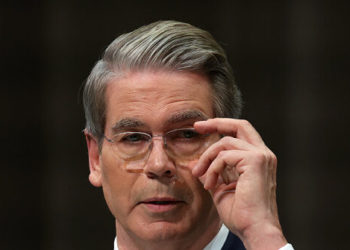MAGA’s biggest threat isn’t Democrats — it’s internal sabotage
Ask a MAGA supporter what the biggest threat to the Make America Great Again movement is, and there’s a good...
Belly’s wedding dress from ‘The Summer I Turned Pretty’ is Kim Kardashian-approved
Belly’s simple and chić wedding dress from Season 3 of “The Summer I Turned Pretty” was approved by Kim Kardashian,...
Europe must choose: Invest in fear or in the future
Begüm Zorlu is a research fellow at City, University of London (St George’s). Gülseren Onanç is a visiting fellow at...
Seth Meyers Says Trump Isn’t Doing Himself Any Favors
Welcome to Best of Late Night, a rundown of the previous night’s highlights that lets you sleep — and lets...
Can Australia’s youth social media ban work?
When Australia’s government decided to implement a world-first national youth , it was pitched as an antidote to a growing...
Hermès’ CEO says seeing new Birkins on the resale market puts him in a bad mood
Birkin bags and Hermès accessories at Paris Fashion Week in March 2024Jeremy Moeller/Getty ImagesThe sight of fresh Birkins on resale...
Louisiana ‘Medicaid millionaire’ bought Lamborghini while claiming government benefits for years
Not so fast. A Louisiana woman who purchased a Lamborghini while fraudulently obtaining Medicaid benefits is facing a fraud charge, authorities said...
America’s Best Continuing Care Retirement Communities 2026 Survey
As populations age, their care needs change as well. Continuing care retirement communities allow aging individuals to access whatever level...
Australian court rejects X Corp.’s appeal in child safety case, orders legal costs
MELBOURNE, Australia (AP) — An Australian appeals court on Thursday ruled against X Corp., rejecting a challenge to a safety...
Trump Trade Deals Threaten Canada’s Vital Auto Industry
For decades, Canadians have been, by a wide margin, the world’s largest buyers of cars and trucks made in the...

















